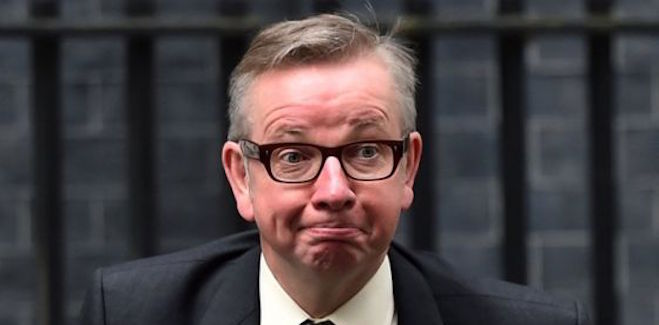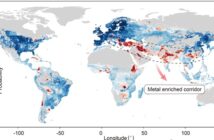Defra Secretary Michael Gove has outlined his plans for a ‘Green Brexit’, including a domestic agricultural policy that rewards farmers for protecting and enhancing the environment.
In a speech at WWF’s Living Planet Centre, Mr Gove described himself as an ‘environmentalist because of hard calculation as well as the promptings of the heart’. “Unless we take the right environmental action we risk seeing more species die out, with potentially undreamt of consequences in terms of the health and balance of nature,” he said.
He said Brexit create an ‘historic opportunity to review our policies on agriculture, land use, biodiversity, woodlands, marine conservation, fisheries, pesticide licensing, chemical regulation, animal welfare, habitat management, waste, water purity, air quality and so much more.’
“Leaving the European Union means leaving the Common Agricultural Policy, leaving the Common Fisheries Policy, taking back control of environmental policy,” he said, describing the CAP along with the Common Fisheries Policy as ‘the two areas where the EU has most clearly failed to achieve its stated environmental goals’.
“Both have been reformed during their lives, and improvements have been made, but they are still not designed to put the environment first,” he said.
“The Common Agricultural Policy rewards size of land-holding ahead of good environmental practice, all too often puts resources in the hands of the already wealthy rather than into the common good of our shared natural environment, and encourages patterns of land use which are wasteful of natural resources and often intrinsically poor value rather than encouraging imaginative and environmentally enriching alternatives.”
He confirmed the Government we will match the £3 billion that farmers currently receive in support from the CAP until 2022 and said he wanted to ensure ‘we go on generously supporting farmers for many more years to come’. “But that support can only be argued for against other competing public goods if the environmental benefits of that spending are clear,” he said.
Need for reform
He highlighted the ‘high quality food’ farmers produce and their role in protecting and enhancing ‘beautiful landscapes’, such as the Lake District, as reasons why Government support for farming is justified.
“While continued support is critically important, so is reform. And indeed I have been struck in the conversations I have had with organisations like the NFU, The Farmers Union of Wales and the CLA that it is farmers themselves who most want the CAP to change,” he said, citing the CAP’s bureaucratic constraints and the way it holds back productivity and impedes progressive environmental stewardship.
“And from all the conversations I have had so far I with farmers, land owners and managers I know there is a growing appetite for a new system of agricultural support which puts environmental protection and enhancement first.
“That means support for woodland creation and tree planting as we seek to meet our aim of eleven million more trees. Because trees are not only a source of beauty and wonder, living evidence of our investment for future generations, they are also a carbon sink, a way to manage flood risk and a habitat for precious species.
“We should also support those land owners and managers who cultivate and protect the range of habitats which will encourage biodiversity. Heathland and bog, meadow and marsh, estuaries and hedgerows alongside so many other landscapes need care and attention if they are to provide home to the growing diversity of animal and plant life we should wish to encourage.
“And alongside encouraging greater bio-diversity, I also want to see higher standards of animal welfare. We need to take action to tackle the trade in illegal ivory, improve scrutiny of what happens in our abattoirs, move on circus animals and examine the future of live animal exports. Cruelty towards animals driven by man’s worst exploitative instincts needs to be met with the full force of the law.”




